ㅡ
The Bloody
"Squid Game" is
>Reality—not just a movie
ㅡ
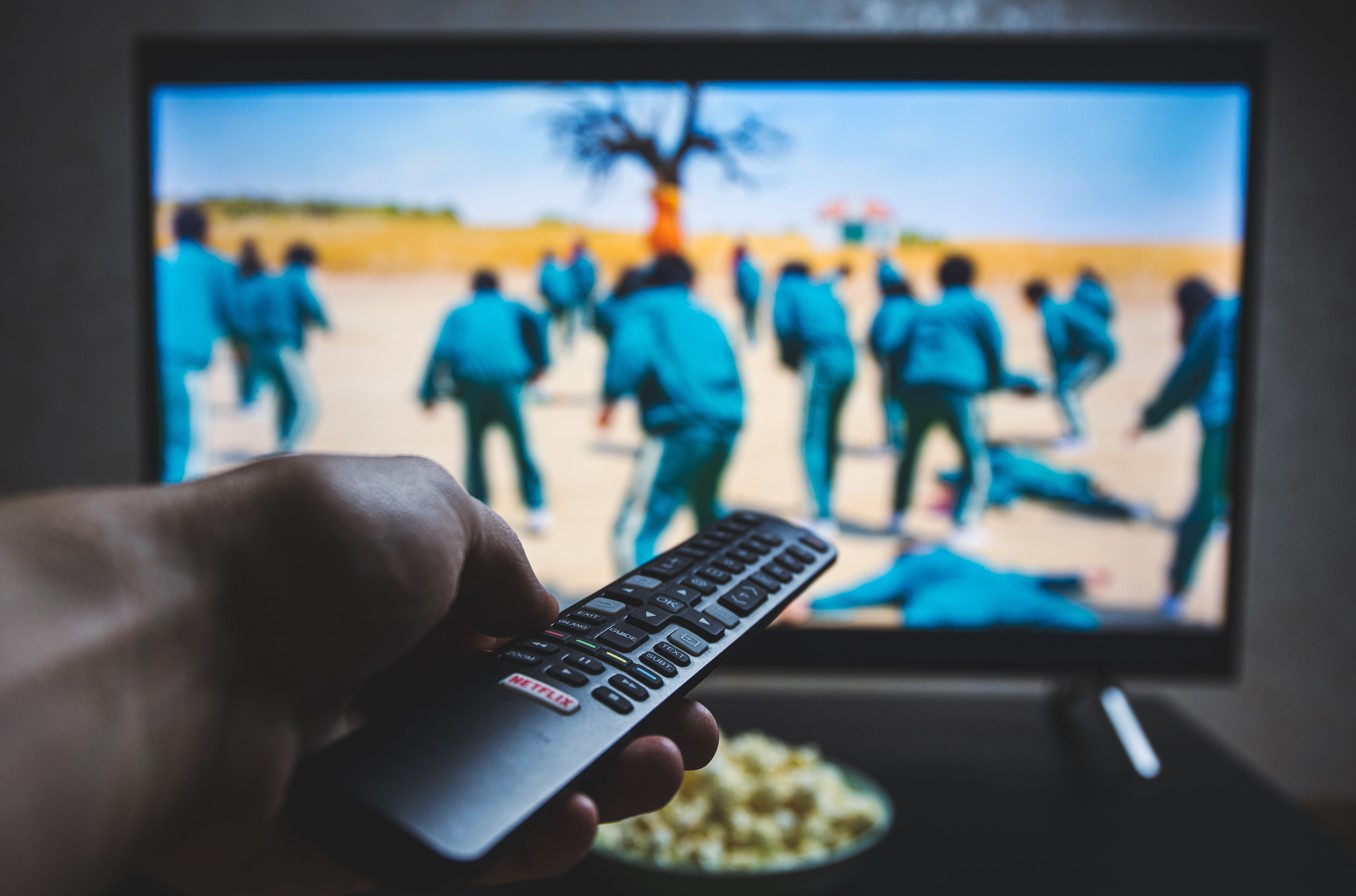
“The Rose of Sharon has Bloomed”
As I desperately run forward, a gunshot rings out at the back of my head. Dead bodies are strewn across the playing field, spattered with red blood. The scene is oddly incongruous, as the background music “Fly Me to the Moon” croons pleasantly on. Because of the soothing music, the monstrous atrocity somehow doesn't feel like a tragedy.
Debt, Inequality, Death
Squid Game roused a global sensation by ranking first in the global popularity rankings on Netflix. The fierce survival game played by Koreans driven by debt to vie for the 45.6 billion won in prize money exposes the outrageous inequality of our era.
For some, it is sheer “hell,” but for VIPs who enjoy gaming while drinking the finest whiskey, it is simply an exciting “horror show.”
British daily The Guardian published an article titled "Squid Game, a hellish horror show taking the whole world by storm" in an article on September 28th. The Guardian asks, "Yes, the games are terrifying but how much worse are they than the half-lives of those living in interminable debt?"
Someone's daily reality might even be more gruesome than the situation in Squid Game. The reason this drama garnered global consensus is probably because the world we live in is unequal.
ㅡ
Chain Links of Inequality Linked
Together in Unbreakable Chains
ㅡ
What is inequality? First, let's look back at the meaning of equality. The dictionary meaning of “equality” is “even and consistent without discrimination.” In other words, it means “treating all people equally and giving them equal opportunities” without dividing or discriminating based on differences in grades or levels.
Conversely, inequality means “the state of being uneven due to discrimination.” In Squid Game, some risk their lives for money, and some enjoy death just for pleasure. Gamers have a lot of wealth, fame, and power, but gamers choose to gamble with their one and only life rather than be in debt. This is inequality
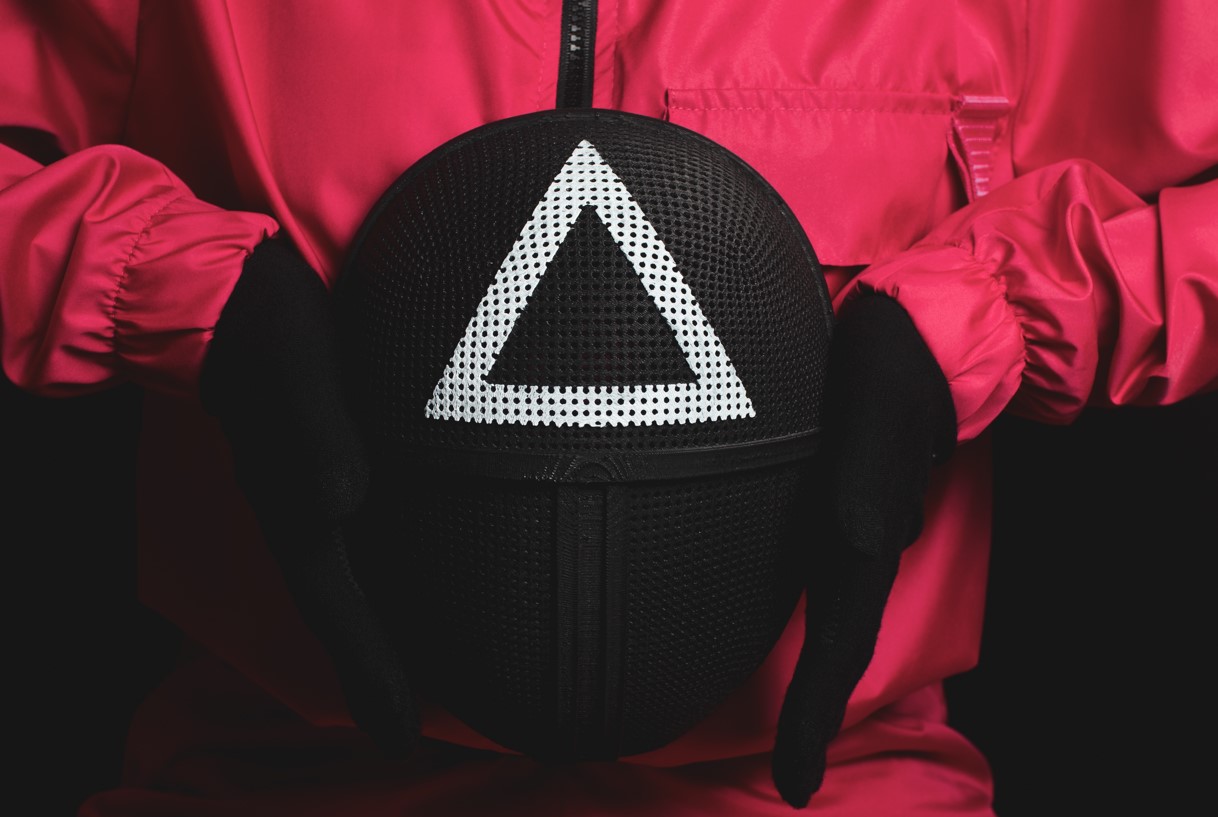
Worse still, the chains of inequality are chained together. Alienation, conflict, and poverty caused by inequality create social problems such as crime, disease, and environmental pollution, and the damage makes the lives of the vulnerable more difficult. It is a vicious cycle that repeats itself.
ㅡ
2021
The global level of inequality is even worse
ㅡ
On December 7, 2021, the World Inequality Lab, in which Thomas Piketty, a professor at the Paris School of Economics, and others participated, announced the “World Inequality Report 2022.” The report contains the results of research on social and economic imbalances in areas such as income, wealth, gender, and environment. The global level of inequality this year is worse than the previous year.
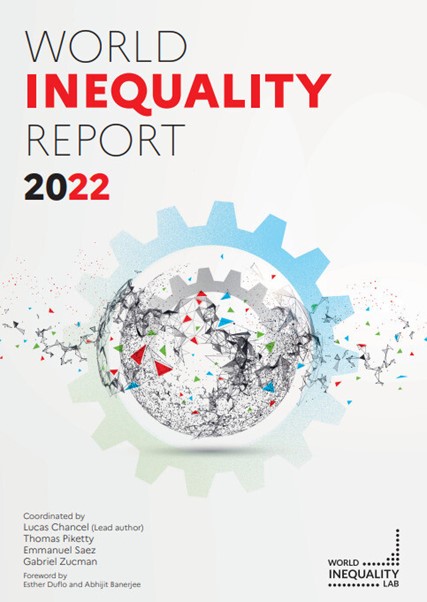
Go to World Inequality Report:
The World InequalityReport 2022 presents the most up-to-date & complete data on inequality worldwide
The report reveals that 2020, during the COVID-19 pandemic, was the year with the steepest growth in the world's billionaires' share of wealth in history.
Between 2019 and 2021, the wealth of the top 0.01% increased by more than 5% annually. The top 0.1% own 11.2% of the world's wealth and have an average of 81.7 million euros (about 108.5 billion won) each.
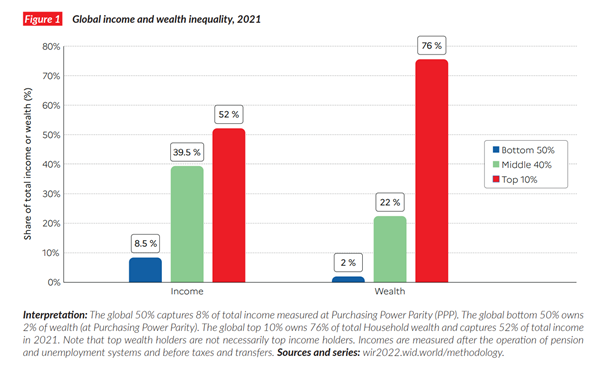
According to the report, the richest 10% of the world's people earned 52% of global income (a total of 36.7 trillion euros, or 49.6 million billion won for the richest sector), while the poorest 50% earned 8.5% of total income (a total of 6 trillion euros, or 8,113 trillion won for the lower half). That's a whopping difference of 31 times.
The disparity in holdings is even greater. The average wealth of the top 10% was 550,900 euros (about 744 million won), while assets of the bottom 50% average 2,900 euros (about 3.92 million won). So there is a 190-fold difference.
Because the gap between the rich and the poor has widened during the corona period, Oxfam and other civic groups around the world have even called the COVID-19 virus an “inequality virus.” This is because the rich and middle class can choose a variety of responses to overcome the epidemic, but the poor and the vulnerable have no choice but to suffer from COVID-19.
“The level of inequality around the world today is close to what it was in the early 20th century, around the peak of Western imperialism,” the report notes. 100 years have passed, but inequality in the global economy is still rampant, and there is still a long way to go to turn inequality into equality.
ㅡ
Pakistani children earn $2
for sewing Nike soccer balls
all day long for
ㅡ
There are two main opinions on why inequality appears. One is the view that it is because each person has different abilities, and the other is that society is creating structural inequality. The international community is focusing on resolving “structural inequality.”
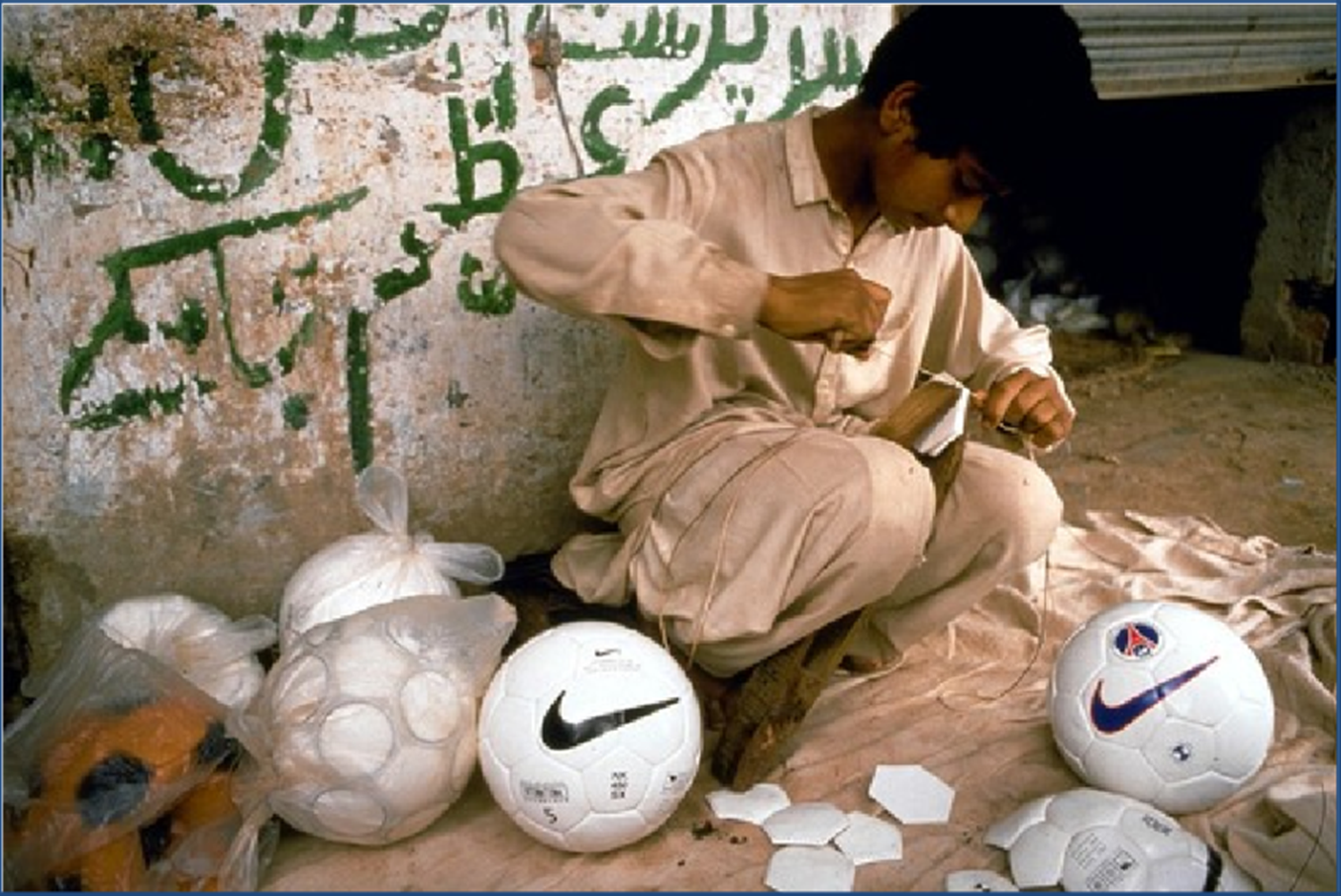
Pakistan sweatshop producing Nike soccer balls, 1996 [30].
There are kids in Pakistan who sew Nike soccer balls all day without a break. These kids sew 14 hours a day and earn about $2 a day. On the other hand, Nike executives can benefit enormously from their cheap labor. If Nike executives' hourly or daily wages were valued equivalent to the lifetime of a worker, would it be fair?
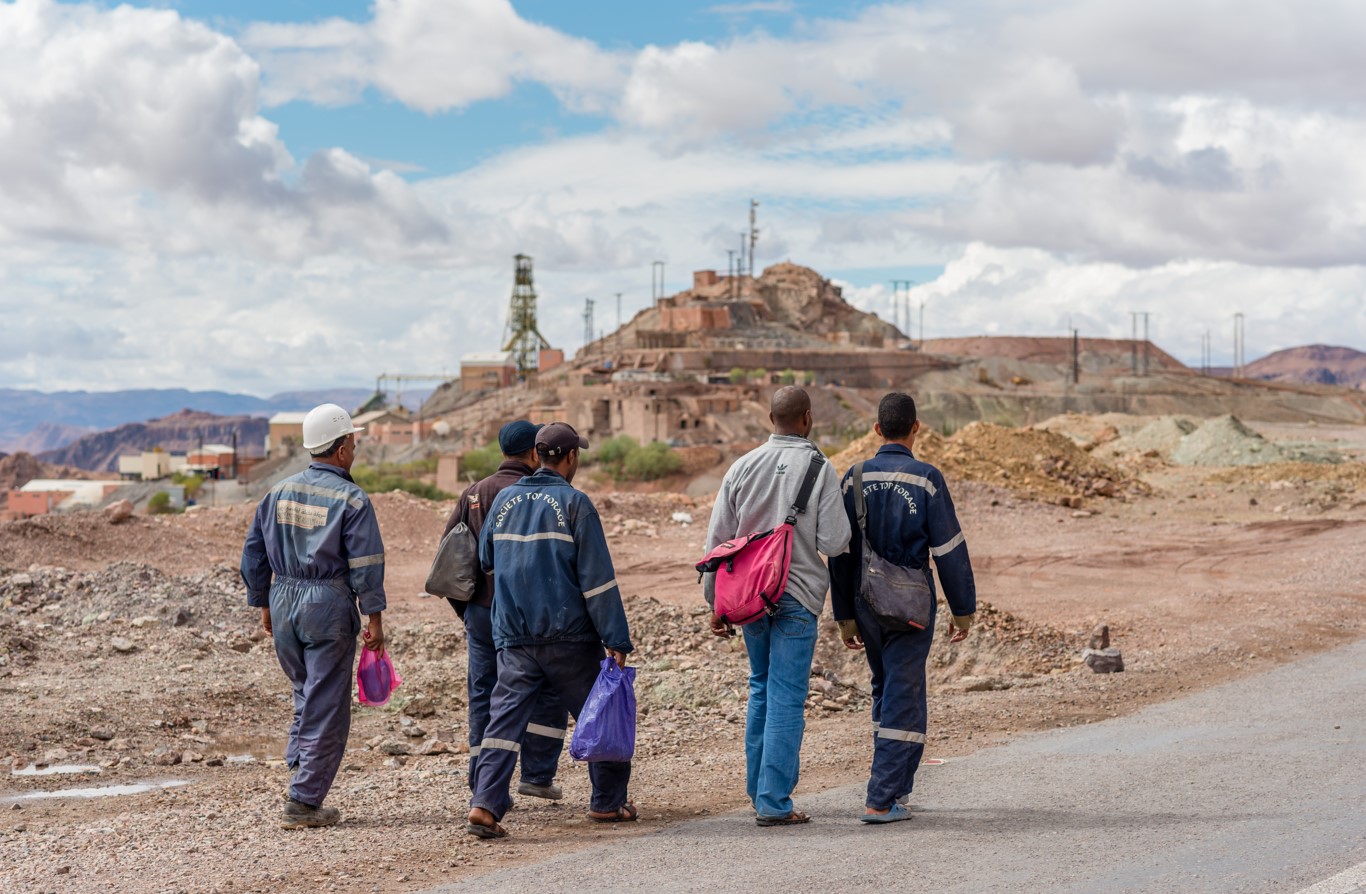
It's not just Nike soccer balls. Unfair trade using cheap labor from underdeveloped countries is endemic in Africa's coffee and chocolate industries, quarries, cotton industries, brick making, and other global industries. Such unfair trade functions to consolidate global “structural inequality.”
A poor economic structure leads to a “vicious cycle of poverty.” The economic structure of developed countries is based on high value-added industries such as software and patented pharmaceuticals, but poorer countries depend on labor-intensive industries, making it difficult to grow. The structure of inequality in which the poor continue to be poor, and the rich are bound to get richer is a vicious cycle around the world.
ㅡ
Why did the poor
ountries become poor?
ㅡ
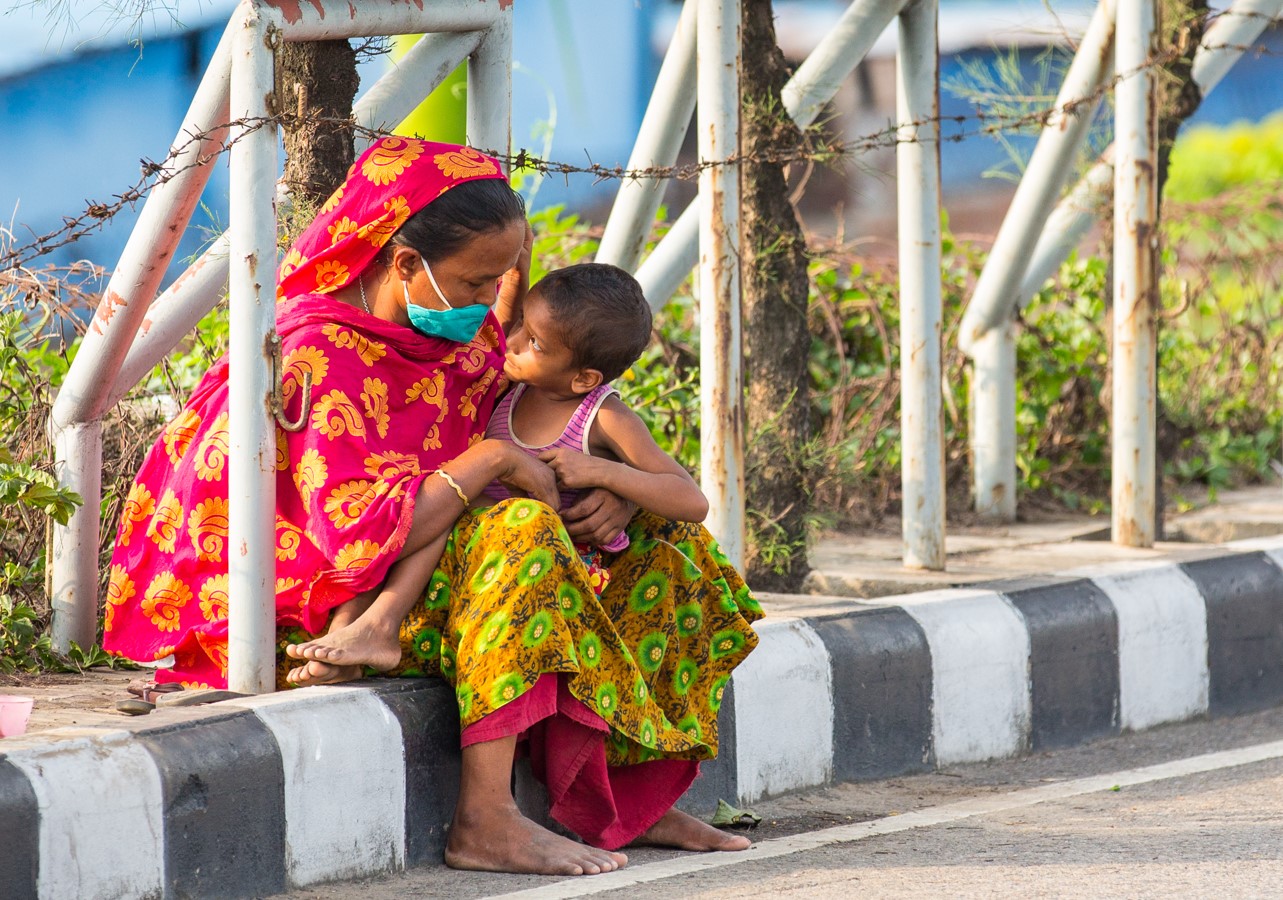
Why did poor countries become poor? First of all, countries that have experienced wars and political conflicts are more likely to be economically poor than those that have not. War destroys a nation's communications and facilities, creates a labor shortage, and, if continued, slows investment and business activity. In addition, when the government fails to fulfill its role due to political conflict, investment and various economic activities are reduced and the country suffers economic difficulties.
'Corruption' causes a shortfall in welfare services
Countries with high levels of corruption and crime do not readily invest in people's well-being and in new businesses. If welfare such as public infrastructure, education, medical care, and pension are not properly guaranteed, the foundation for economic development is weak, and global investors are reluctant to invest in new businesses.
Low levels of education
Countries with low levels of education have no choice but to focus on primary industries. Developed countries, on the other hand, equipped with a skilled workforce and skills through high-quality education, dominate capital-intensive industries, and drive global economic growth. Without a universal and systematic education system, technological development and creative economic activities cannot be created.
Substandard medical infrastructure
Even ailments that can be healed with simple treatment in developed countries, often lead to life-threatening maladies in underdeveloped countries with poor medical infrastructure. Every year 100 million people fall into extreme poverty because of medical bills, and 10,000 people die every day because of lack of access to health care for economic reasons. Because health is not guaranteed, it is difficult to promote personal and social growth.
ㅡ
The monkey society teaches us the
way to put an end to the Squid Game scenario!
The method? Coexistence, Sharing, Care, Cooperation.
ㅡ
We cannot solve the challenges of the 21st century without addressing wealth inequality. How can we end the bloody "Squid Game" scenario in our world? Perhaps a monkey named Bonobo knows the answer.
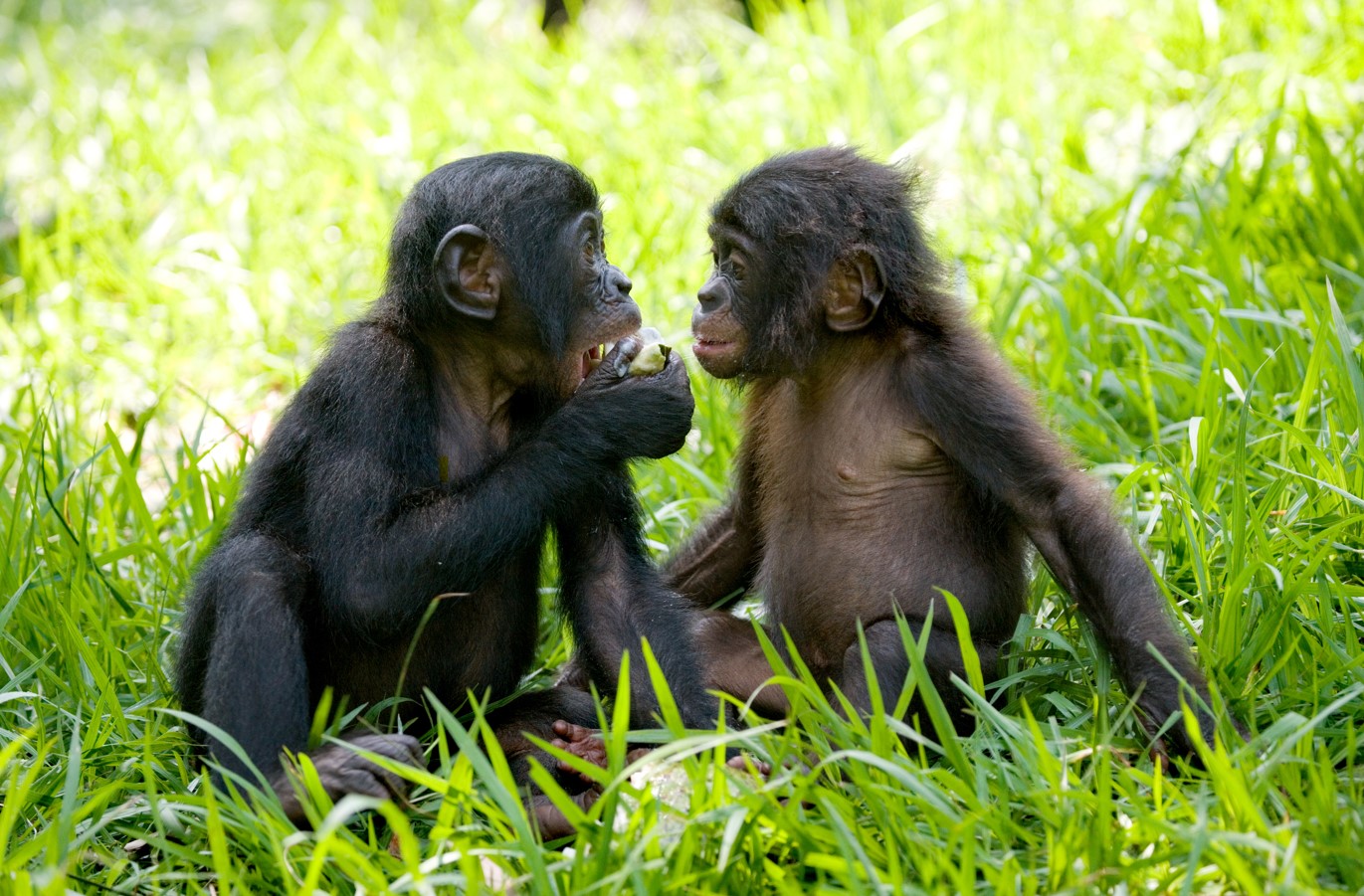
In the book Bonobos: The Forgotten Apes (1997) by primatologist Frans De Waal, a chimpanzee called the bonobo features.
Most research on chimpanzees reveals that chimpanzees have a male-dominated vertical hierarchy, engage in power struggles involving violence, and wage brutal warfare with other chimpanzee tribes.
However, according to Frans de Waal's research, bonobos have completely different behavior and culture. Bonobos have robust female-to-female bonds, and males do not dominate them. In addition, bonobos do not create detailed vertical hierarchies and are said to care for and embrace the sick or weak within the herd without alienating or oppressing them.
In bonobo society, gender equality is maintained, the value of ”feminine things” is emphasized, and a culture of coexistence, sharing, care, and cooperation exists to resolve inequality. This bonobo culture gave a huge shock to the world of primatology as well as anthropology, sociology, and women's academia.
Even in the harsh real world like Squid Game, there are groups that are making efforts for coexistence and cooperation like the bonobo society.
● Oxfam, an international relief organization that creates a “poverty free, fair world”
Oxfam is an international relief and development organization established by the Oxford Academic Council in 1942 to relieve poverty during World War II. Over the past 80 years, more than 100 countries around the world have conducted various aid activities to overcome poverty.
Oxfam is exerting influence in policymaking through cooperation with governments and various international organizations, as well as solving the drinking water problem in underdeveloped countries, and carrying out humanitarian relief activities such as food aid, community development, and education projects.
In particular, Oxfam is carrying out activities such as “stop tax avoidance,” “paying fair wages for all,” and “expansion of health and education services” to resolve the global gap between the rich and the poor.
● Billionaires pledge to donate (The Giving Pledge)
The participation of the wealthy is essential to transform wealth inequality into equality. Global billionaires are also joining forces to tackle inequality. The Donation Pledge is a charitable organization founded in 2010 by Warren Buffett, Berkshire Hathaway, and Bill Gates; to become eligible to join, the principle is to donate at least half of one’s fortune.
Members include Facebook founder Mark Zuckerberg and Tesla CEO Elon Musk.
ㅡ
Post COVID-19
5 steps to rebuilding a more equal world
by Oxfam
ㅡ
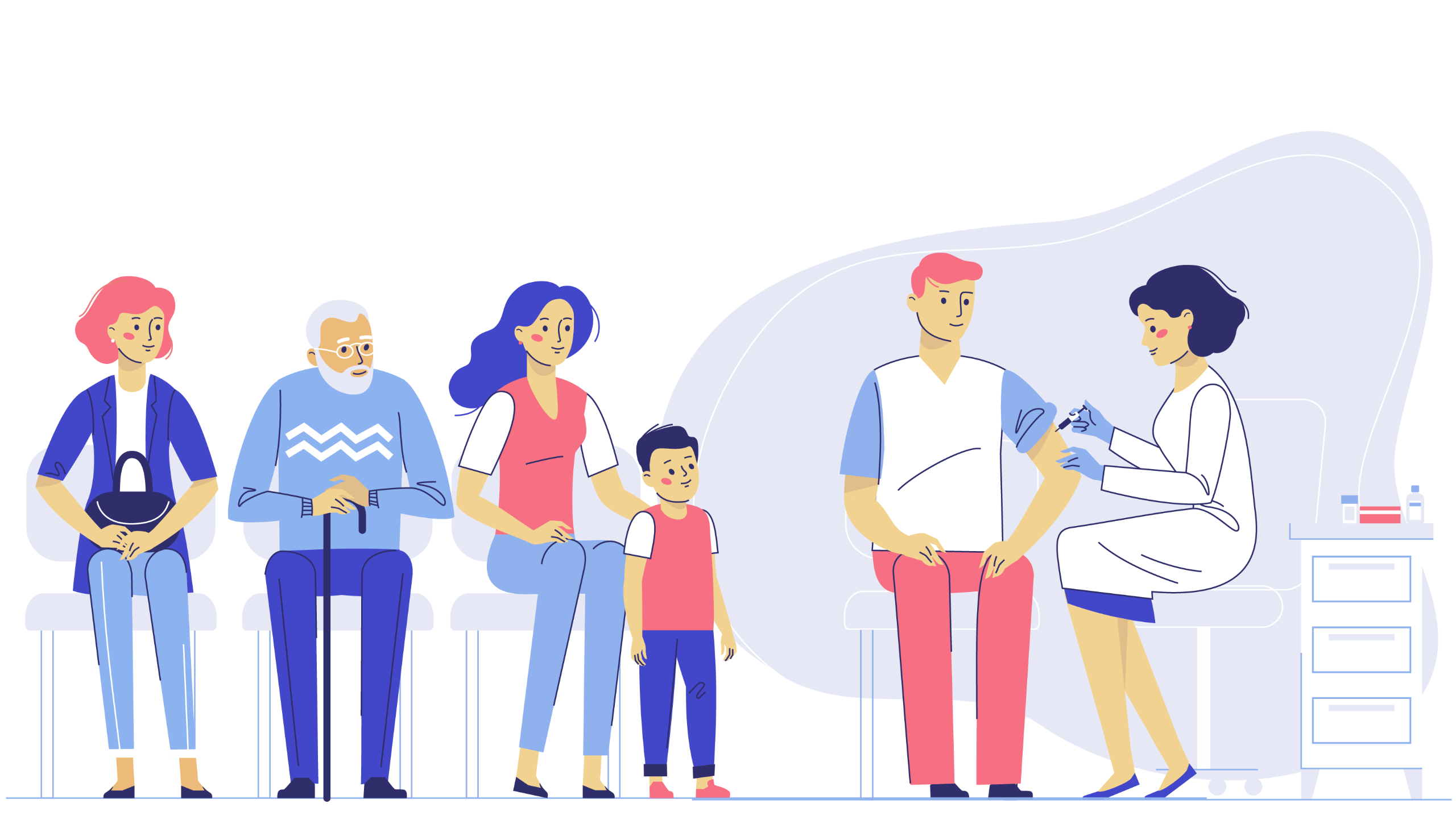
In order to resolve structurally fixed global inequality, fair and inclusive policies must be prepared. In particular, it is most important to effectively establish a system of public services and welfare policies such as “education” and “health” for all human life.
Oxfam presents the following 5 steps to overcome inequality after COVID-19:
1. The government should value women's unpaid care work.
The government must build an economy for poor black women as well as rich white men. Governments need to start valuing the things that really matter: the millions of hours of unpaid care that women have been doing.
2. The government invests in free public services.
Governments must provide free universal health and education services regardless of wealth, gender or race.
3. Comprehensive job security is required.
Ending poverty requires not only wages but also much more comprehensive job security, including labor rights, sick leave, and unemployment benefits.
4. We need to make sure the rich pay their fair share of taxes. Progressive taxation of the wealthiest members of society is the cornerstone for building an egalitarian society.
5. Climate change must be addressed.
Global warming is the greatest threat to humankind, making the lives of the vulnerable more difficult. The international community must end all subsidies for fossil fuels and invest in low-carbon industries, creating millions of new jobs.
ㅡ
Saving each other:
The wisdom of coexistence
ㅡ
Ki-hoon, the main character and final survivor of the “hell-like horror show”—Squid Game, says these things: “Originally, it is not that I believe because people are trustworthy. I believe because if I don’t I have no one to rely on."
The secret by which Ki-hoon, who seems a bit immature, was able to become the final survivor by defeating the elite “Sang-woo,” who graduated from the top ranks, maybe was because he has the “wisdom to live together,” as can be seen from the above line.
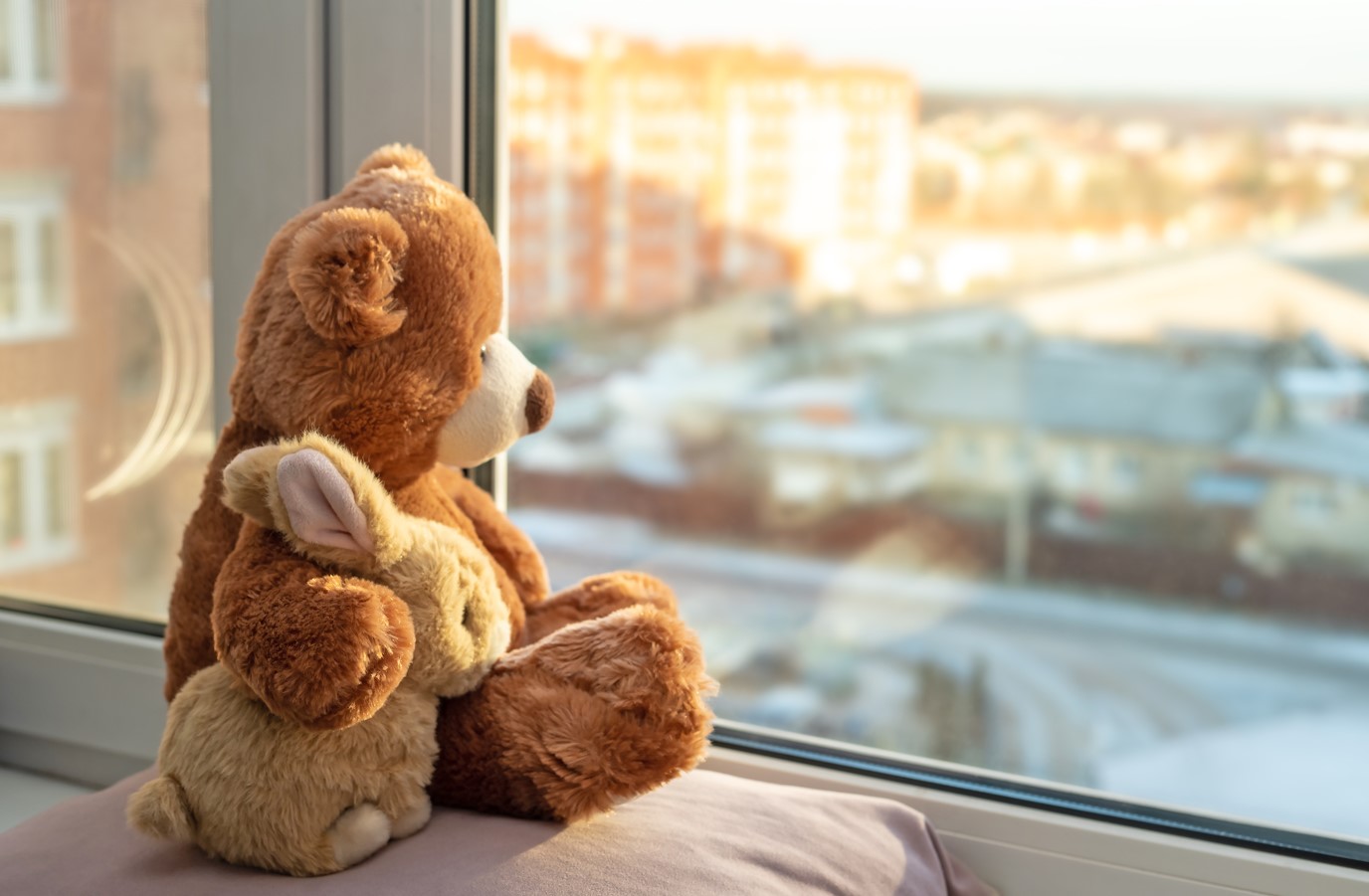
In 2020~2022, with COVID-19 pervasive, people all over the world realized that we are social animals who influence and affect each other, irrespective of the degree of being rich or poor. “Vaccine selfishness,” the view that only me and the people of my country need to live, eventually turned it into a more powerful mutant virus and it returned like a deadly boomerang.
The lesson that COVID-19 can teach us is probably the message that “solidarity and cooperation are essential because the lives and deaths of all humankind are intertwined like a web.”
Vaccines aren't the only thing humanity needs to share to survive. In order for mankind to prosper peacefully, inequality must be reduced through a culture of coexistence, sharing, care, and cooperation. Only then can each of us act so as to save one another and our whole world!
Written by Sharon Choi
Director of Planning
Sunhak Peace Prize Secretariat

